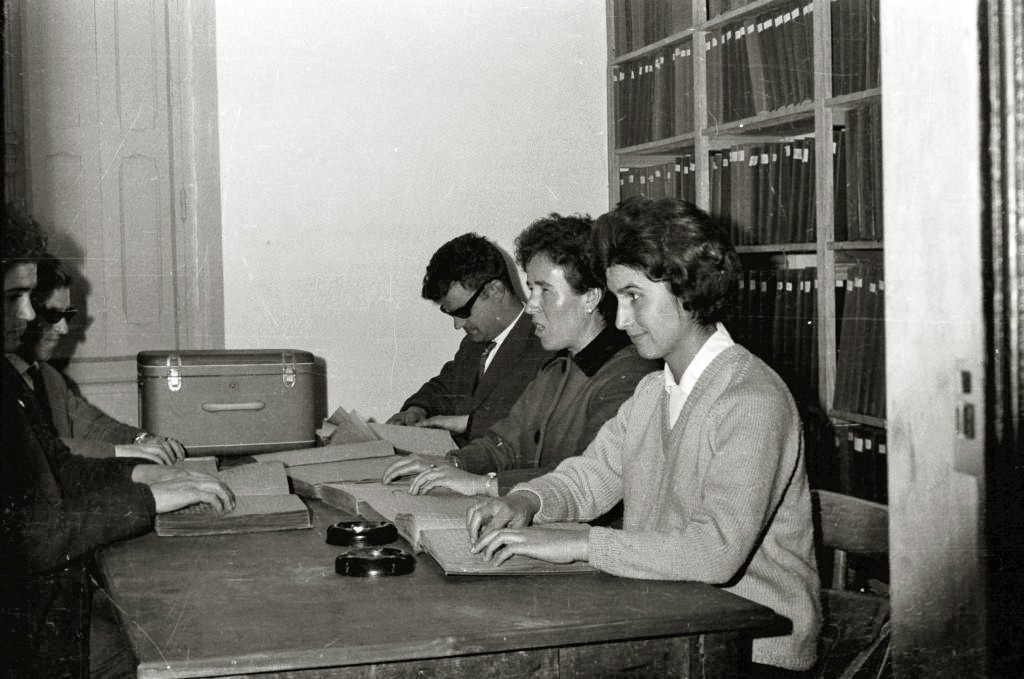Visually Impaired Products, From Evolution to Digitization
2019-07-04 | By Orcam Staff

Visually impaired products are quite common these days. But it wasn’t always this way. Over the course of the last two centuries, life for the blind and visually impaired has changed dramatically. Two hundred years ago, Louis Braille invented a method to read with your fingers.
It All Began with Braille

In many ways, Braille was the beginning of visually impaired products. With the invention of the Braille reading and writing system in 1820, people who were blind and visually impaired were taught to read text with their fingers. Small dots printed on a sheet of paper represented letters which became words in the Braille reading method. After thousands of years without the ability to read and learn on their own, schools for the blind began opening their doors across the United States. For people born with blindness and visual impairment after the invention of Braille, life took on a whole new meaning with access to knowledge and education. Unfortunately, there was still a long way to go in order to provide them with an independent way of life.
Blind Awareness

Even with Braille, there was still no solution for reading from non-Braille texts. These included street signs, product labels, money notes, and many others. Therefore, people who were blind and visually impaired had no way of living a completely independent life, without human assistance. Equally important, awareness of the challenges of living with blindness grew substantially. This raised awareness caused expansion of government laws, scholarships, charities, and more for the benefit of the blind and visually impaired. Nowadays, almost every major city worldwide has foundations and organizations which help the blind and visually impaired. In addition, visually impaired products are available in almost every country. You can easily find them online or in stores that carry products for people who require daily living aids.
The Digital Age of Visually Impaired Products
Only a few decades ago, visually impaired products were introduced with life-changing features for the blind and visually impaired. Above all, the increase in modern digitization in society requires the ability to use new technology. Technology which allows for long distance communication is necessary for everyone in order to communicate with service providers, friends, and relatives. Search engines and internet browsers, which have essentially replaced libraries, have the most relevant information. This makes the ability to access them essential for everyone.
Visually impaired products offer solutions such as text reading from computer screens and printed texts as well as machine learning features such as facial recognition. Because of these capabilities, people with blindness and visual impairment can perform tasks independently which they couldn’t in the past. These available features have allowed for enablement and employment for the blind and visually impaired worldwide.
OrCam MyEye 2

One of the most advanced visually impaired products, OrCam MyEye 2, uses AI technology to instantly read text, recognize faces, identify products and more. A lightweight wearable device that can fit onto the side of a pair of glasses. It works anywhere, without the need of an internet connection. It is easy-to-use and intuitive. These devices have changed the lives of people who are blind or visually impaired all over the world. Watch it being featured on STEVE, Dr. Phil, BBC and more….
What to Expect in the Future
Finally, regarding the future, we can make a relative prediction. This is due to our knowledge of how robotics and technology are moving forward these days. Similarly, as these developments improve, we may experience robots performing our tasks and chores. This may include cooking, cleaning, errands, shopping, or any other tasks we may require. Visually impaired products are empowering independent living, changing the lives of people with disabilities everywhere. They will continue to do such for years to come. This will give people who are blind or visually impaired independence that they could never have imagined back in the 1800’s.



